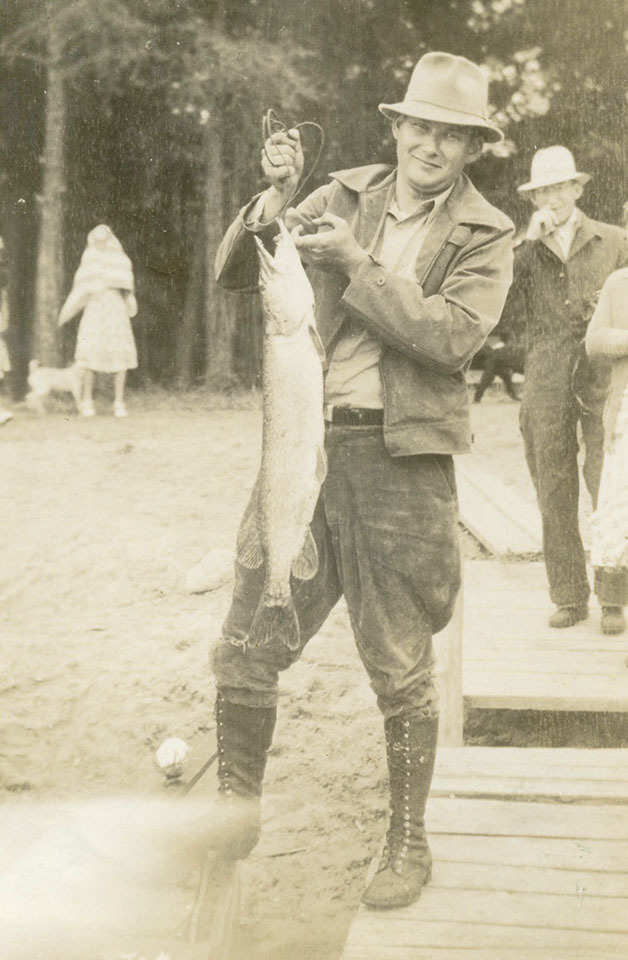At 85 years-old, David Olsen has lived a long, full life. He’s worked on boats, skippered a cannery tender by the age of 21. He even did a stint in the CIA. Although, some of that information is still confidential. “Yes, I have it in the book. It’s one chapter. It’s been cleared by central intelligence. We had to back and forth because they didn’t like some of things that I had put in. Why? I don’t know. It’s over 50 years old. And the people I was writing about were mostly dead, but they found something to quibble about. I guess that’s their job.”
What he can tell you about is growing up in Ketchikan. Olson’s family moved there from Minnesota in 1944. His dad got the job as a seminarian to the Norwegian Seaman’s Mission. Olson says, back then, Ketchikan was a different place. “Oh, my. The changes are immense.”
In the 1940s, the population was about half of what it is now. Norwegian was widely spoken as a first language. “There was no ferry system. And when I was a boy, the three main occupations were fishing, logging, and mining. And I always thought if those three went down the tubes that would be the end of Ketchikan, but then the cruise ships arrived and that changed everything.”
Olson’s father was influential around town. He taught Norwegian immigrants English during his tenure as a Lutheran minister. “He was also a political activist. He didn’t seek causes but when the causes surfaced; he took on those causes and took the bull by the horns.”
One day, at a school board meeting, Olson’s dad was presented with a problem: a brothel on Creek Street had opened up. “Some of the young lads in Ketchikan High School went up the creek and came home with a lot of pain. The doctors in town had to treat them they were not very happy with that situation.” The young men had contracted STDs at time when little was known about venereal disease. Doctors didn’t even have the penicillin to treat them. “The only way was to shut them down.”
First, Olson’s dad went to the Ketchikan City Council. But the male-led group wouldn’t hear of closing the brothel’s doors, so Reverend Roy Olson organized the women. “And it was an ecumenical movement. The Methodist. The Episcopalians. The Lutherans. The woman all joined forces. They had the pleasure of going to the dock and watching a number of those nice ladies depart to go back to Seattle.”
Olson left Ketchikan at the age of 17 but continued to work on boats in Southeast Alaskan waters. His new book chronicles his experiences, along with the lives of his father, brother, and daughter. Olson has outlived all three. “I started thinking; If I was really the sole survivor. If I didn’t tell those stories of those book worthy lives, who would?
He began writing Bonded by Water eight years ago.
You can buy David Olson’s book on his website: Bondedbywater.com












